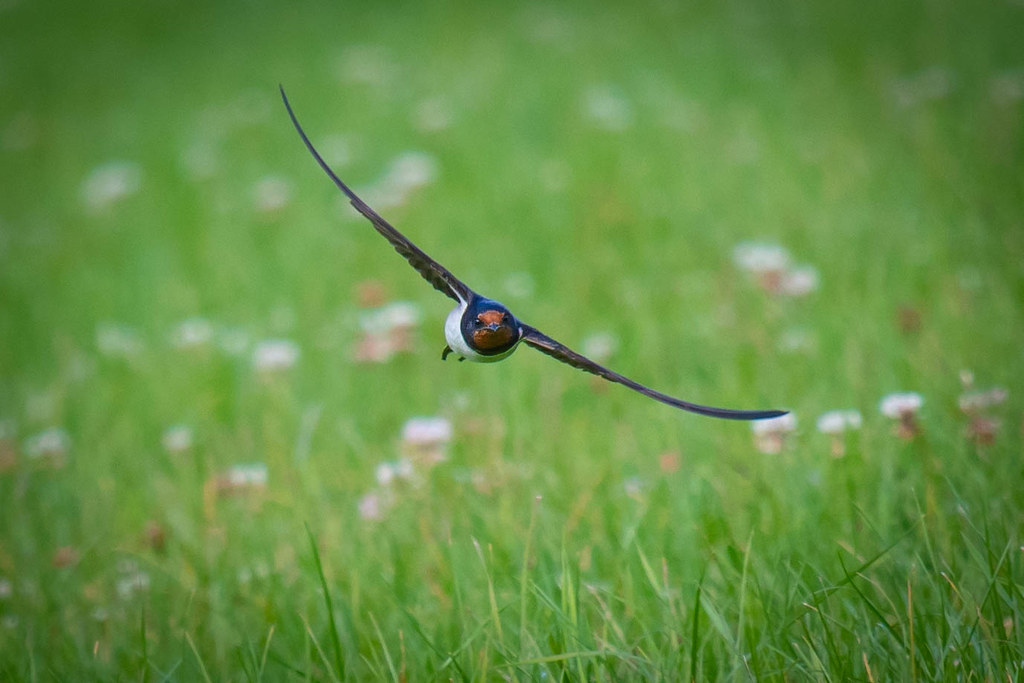(After many attempts) a swallow in flight, look how perfectly level the head is.

(After many attempts) a swallow in flight, look how perfectly level the head is.

Great shot.
Since being made redundant I have been walking the dog around the local reservoir every morning at about 9.00am. Decided it was time to get a pair of binoculars and picked up a nice 2nd hand set of Nikons for £50 on ebay at the weekend.
Took them out this morning and whilst at the head of the reservoir I noticed two swans (there are shedloads of mute swans here) that looked dark. I assumed it was because they were silhouetted but taking a closer look through the bins they were black with red beaks - just like these:
Apparently they are an antipodean species but have been getting more common in the UK - Dawlish have some that are a major tourist attraction apparently. First time I have seen any though.
Will take my camera tomorrow and try to get a photo before they disappear (if they haven’t already).
There are quite a number of breeding pairs in the UK now. All originated from escaped birds.
Went back this evening and they were pretty much exactly where they had been this morning - looked a bit nervous and kept their eye on me (and the dog) the whole time.
Sorry for the shit photo.
Nice to see, anyway, Paul. Thanks
Glad I went back last night now as there was no sign of them this morning.
Just hanging out the washing and a sparrowhawk landed on the climbing frame about 8 feet from me. Closest I’ve ever been to a wild bird of prey. We eyed each other up for about 30 secs then it flew off into a bush next door - from which shortly emerged a pigeon at warp factor 9.
Cool! I went out into our back garden a few years ago to find a sparrowhawk on the lawn clutching it’s freshly caught breakfast in one foot.
Rare Sandpiper not seen in the uk for over 60 years apparently…
Frampton Marsh. Poor bloody thing.
VB
That’ll be except the one in Dorset in Jan 2018
or the one in Hampshire in May 2016
or the one in Northumberland in August 2014
or the ones in 2012, 2011, 2009, 2008…
Not sure where the 60 year thing came from, but they are seen pretty much annually in the UK, I’m afraid.
An “expert” on BBC breakfast TV this morning said that it had only ever been sighted in the UK once before, in the 1960s.
Well then he is not an “expert” he’s a very poorly informed twat. The type that the BBC seem to be able to dredge up at will whenever it comes to sensationalising a story.
Can you remember his name?
Nah, i wasn’t taking that much notice, not being a twitcher.
The article i posted above does say:
“The wading bird is usually found along the shore of the USA’s East Coast and it is only the second one ever seen in the county.”
So maybe only the second time in Lincolnshire…
I saw that quote.
That’s wrong too. It’s the third record for Lincolnshire and the last one was 54 years ago.
Sorry, but the BBC should really research these things a little better. Knowing that the information they published was wrong, it took me a couple of minutes to access the correct data. The BBC’s “expert” should and could have done that.
They breed in the Arctic Tundra of North America and winter in the northern parts of South America, so yes they are seen along the USA’s East Coast, but only on passage, it’s not their primary habitat.
Just lazy reporting, that’s all.
these day since the Breakfast mob moved to Salford, all their expertise is dredged up from that minor town called Manchester. Of course all of us that know that all experts in everything come from London, but the beeb are too mean to pay them
Today is Passenger Pigeon day.
104 years ago today the most numerous bird species on earth went extinct when the last Passenger Pigeon, named Martha, died in Cincinatti Zoo.
Incredible to think that we could wipe out a bird that once numbered an estimated 9 billion individuals